Document Author
Year Published
- 2007 (2) Apply 2007 filter
- 2015 (2) Apply 2015 filter
- 2003 (1) Apply 2003 filter
- 2004 (1) Apply 2004 filter
- 2009 (1) Apply 2009 filter
- 2011 (1) Apply 2011 filter
- 2012 (1) Apply 2012 filter
- 2013 (1) Apply 2013 filter
- 2014 (1) Apply 2014 filter
- 2016 (1) Apply 2016 filter
- 2018 (1) Apply 2018 filter
- 2022 (1) Apply 2022 filter
Topic
- (-) Remove Judges filter Judges
- (-) Remove Judicial Ethics filter Judicial Ethics
- 100% Access to Justice (14) Apply 100% Access to Justice filter
- Ethics Education (14) Apply Ethics Education filter
- Articles & SRLN Briefs (4) Apply Articles & SRLN Briefs filter
- Self-Help Centers (3) Apply Self-Help Centers filter
- Trial Court Self-Help (3) Apply Trial Court Self-Help filter
- Forms (2) Apply Forms filter
- Forms (2) Apply Forms filter
- Reports, Evaluations, Best Practices, Surveys (2) Apply Reports, Evaluations, Best Practices, Surveys filter
- Research (2) Apply Research filter
- Simplification (2) Apply Simplification filter
- Strategic Planning (2) Apply Strategic Planning filter
- Unbundling (2) Apply Unbundling filter
- Best Practices (1) Apply Best Practices filter
- Conferences & Summits (1) Apply Conferences & Summits filter
- Constitutional Issues (1) Apply Constitutional Issues filter
- Impact of Self-Represented Litigant Innovations on Cost and Efficiency (1) Apply Impact of Self-Represented Litigant Innovations on Cost and Efficiency filter
- Justice Tech Entrepreneurs (1) Apply Justice Tech Entrepreneurs filter
- Libraries (1) Apply Libraries filter
- Linking a Self-Help Center to Other Services (1) Apply Linking a Self-Help Center to Other Services filter
- Presentations (1) Apply Presentations filter
- Regulatory Concerns (1) Apply Regulatory Concerns filter
- Reports (1) Apply Reports filter
- Trainer of the Trainer Materials / Curricula (1) Apply Trainer of the Trainer Materials / Curricula filter
- Triage (1) Apply Triage filter
- Working Groups (1) Apply Working Groups filter
State
Tags
Post date
Search results
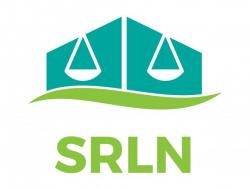
SRLN Brief: Memo on Model Code of Judicial Conduct 2.2 Revisions (SRLN 2012)
This memorandum lays out ways that states can develop state-specific comment language for their judicial codes. The memo reflects recent research, as well as recent state developments as of date of publishing. Judges Judicial Ethics United States SRLN Mem ...
Report: NCSC Judicial Conduct Reporter (Gray 2014)
This issue of the Judicial Conduct Reporter includes an indepth look at how states are addressing the ethics issues posed by self-represented litigants, including a review of case law and Judicial Code of Ethics 2.2. 2.2 Judges Reports Judicial Ethics Uni ...
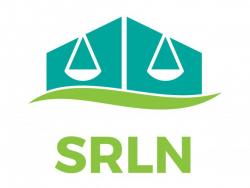
SRLN Brief: Procedural Fairness / Procedural Justice (SRLN 2015)
Research has shown that when defendants and litigants perceive the court process to be fair, they are more likely to comply with court orders and follow the law in the future—regardless of whether they “win” or “lose” their case. This is called procedural ...
Guide: Delaware’s Judicial Guidelines for Civil Hearings Involving Self-Represented Litigants (Delaware 2011)
The Delaware Supreme Court adopted these guidelines, effective May 11, 2011, designed to address concerns that Judicial Officers may have regarding balancing self-represented litigants’ perceptions of procedural fairness while maintaining neutrality in th ...
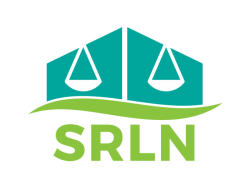
Article: Saving Courtroom Time: Techniques for Judges in Self-Represented Cases (Juhas, McKnight, Zelon, Zorza 2009, rev. 2015)
This article discusses 15 techniques that can increase courtroom efficiency when working with self-represented cases, and summarizes many of the practices suggested in the Judicial Curriculum (srln.org). Recommended Citation: Mark Juhas, Maureen McKnight, ...
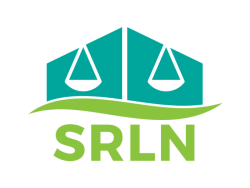
Conference: Harvard Judicial Leadership Conference (SRLN 2007)
Based on the research of the Self-Represented Litigation Network (SRLN), the resources below make up the original judicial curricula prepared by the National Center for State Courts (NCSC), the American Judicature Society, and the National Judicial Colleg ...
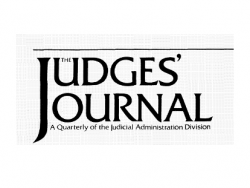
Article: Judicial Techniques for Cases Involving Self-Represented Litigants (Albrecht, Greacen, Hough and Zorza 2003)
This is one of the first article published to stimulate a national dialogue about how judges can best structure and manage their courtrooms to accommodate the needs of self-represented litigants. It remains one of the most accessible introductions to the ...
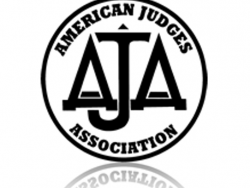
Article: Practical Advice from the Trenches (Wilson & Hutchins 2015)
This article, by Judge Wilson and Judge Hitchins of Baltimore, discusses the value of neutral engagement in easy the tensions for the judge in the SRL courtroom. They write, "Fortunately, through a concept called neutral engagement, judges now have a ...
Article: The Disconnect Between the Requirements of Judicial Neutrality and Those of the Appearance of Neutrality when Parties Appear Pro Se: Causes, Solutions, Recommendations, and Implications (Zorza 2004)
In this article Richard Zorza explores the concept of engaged neutrality which, when employed by the judge, creates a more transparent and arguably more ethically neutral playing field for the self-represented litigant. Recommended Citation: Richard Zorza ...
Article: Turner v. Rogers- Improving Due Process for the Self-Represented (Zorza 2012)
Article by Richard Zorza on the U.S. Supreme Court’s decision in Turner v. Rogers (2011) and how courts should see this decision as an opportunity to improve their services and programs for self-represented litigants. Recommended Citation: Richard Zorza, ...